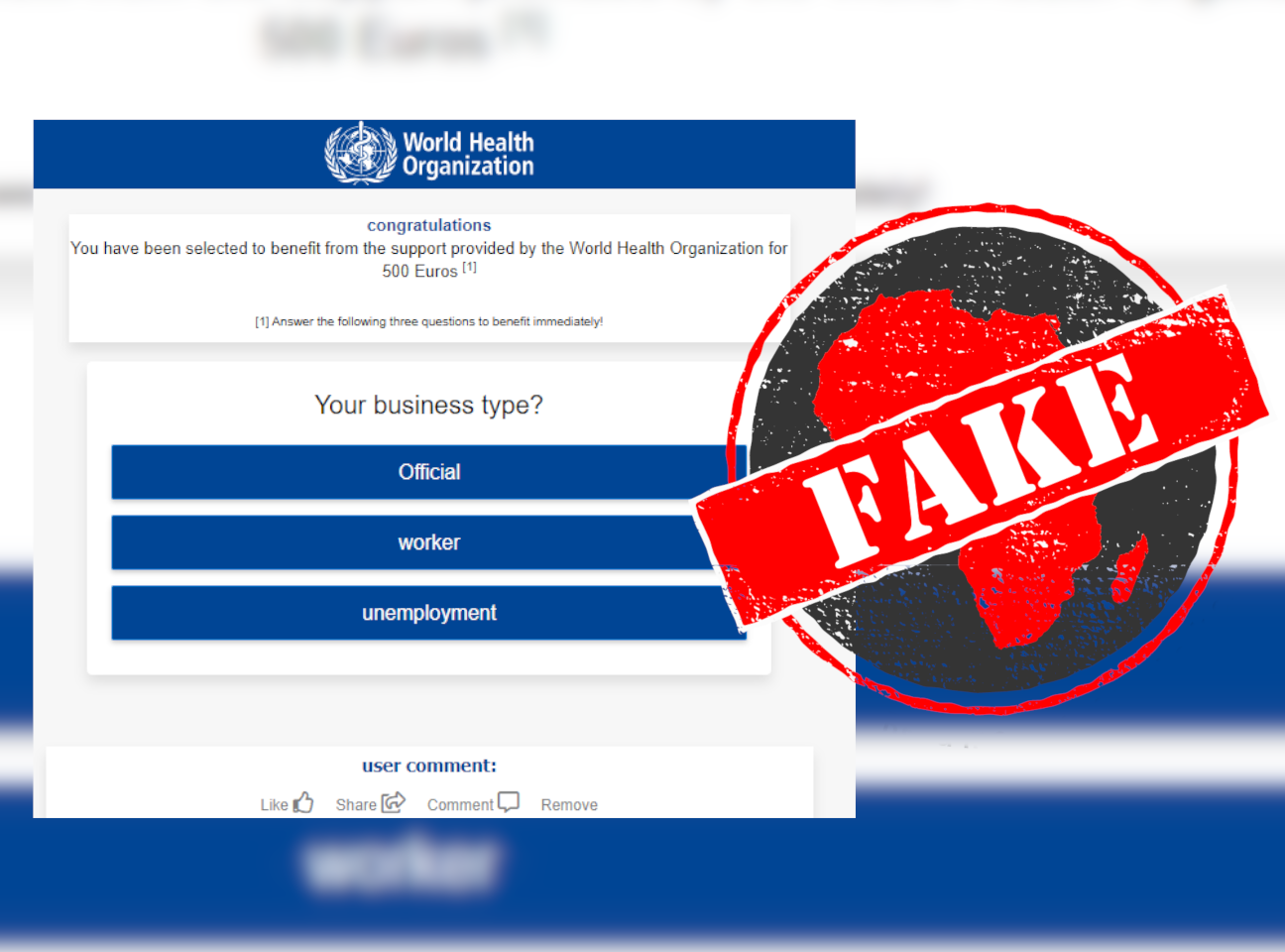A webpage posted on Facebook and WhatsApp in Kenya claims that the World Health Organization is giving cash to the public.
The page carries the WHO logo and text that reads: “Congratulations. You have been selected to benefit from the support provided by the World Health Organization for 500 Euros.”
It then asks users a series of questions, with each answer leading to a new page. After answering each question – the user’s job, for example – it displays a message: “After considering your answers, set the subsidy amount to 300 Euros and complete the steps to obtain the withdrawal code from the electronic counter.”
It also tells users that they “may get the subsidy with only one step” if they share the page with five groups or 15 friends on WhatsApp.
The page has been shared in several countries, as well as on popular Kenyan Facebook group pages, one with more than 130,000 members and another with over 20,000 members.

Posts that ask people to interact by liking, commenting or sharing are usually engagement bait scams. The more people interact with a post, the greater its reach.
No such offer has been published on any WHO official platform. And the WHO’s offices in both Europe and Africa have called the promotion a scam.
“This fraudulent scheme asks for personal information on individuals and despite using the WHO logo is not in any way associated with the organisation. WHO does not offer prizes or awards through emails or other messages,” the global health agency cautioned on 4 January 2021.
To further protect yourself against online scams, read our guide to Facebook scams and how to spot them.
The page carries the WHO logo and text that reads: “Congratulations. You have been selected to benefit from the support provided by the World Health Organization for 500 Euros.”
It then asks users a series of questions, with each answer leading to a new page. After answering each question – the user’s job, for example – it displays a message: “After considering your answers, set the subsidy amount to 300 Euros and complete the steps to obtain the withdrawal code from the electronic counter.”
It also tells users that they “may get the subsidy with only one step” if they share the page with five groups or 15 friends on WhatsApp.
The page has been shared in several countries, as well as on popular Kenyan Facebook group pages, one with more than 130,000 members and another with over 20,000 members.

‘Fraudulent scheme’ – WHO
Posts that ask people to interact by liking, commenting or sharing are usually engagement bait scams. The more people interact with a post, the greater its reach.
No such offer has been published on any WHO official platform. And the WHO’s offices in both Europe and Africa have called the promotion a scam.
“This fraudulent scheme asks for personal information on individuals and despite using the WHO logo is not in any way associated with the organisation. WHO does not offer prizes or awards through emails or other messages,” the global health agency cautioned on 4 January 2021.
To further protect yourself against online scams, read our guide to Facebook scams and how to spot them.
Republish our content for free
For publishers: what to do if your post is rated false
A fact-checker has rated your Facebook or Instagram post as “false”, “altered”, “partly false” or “missing context”. This could have serious consequences. What do you do?
Click on our guide for the steps you should follow.
Publishers guideAfrica Check teams up with Facebook
Africa Check is a partner in Meta's third-party fact-checking programme to help stop the spread of false information on social media.
The content we rate as “false” will be downgraded on Facebook and Instagram. This means fewer people will see it.
You can also help identify false information on Facebook. This guide explains how.


Add new comment